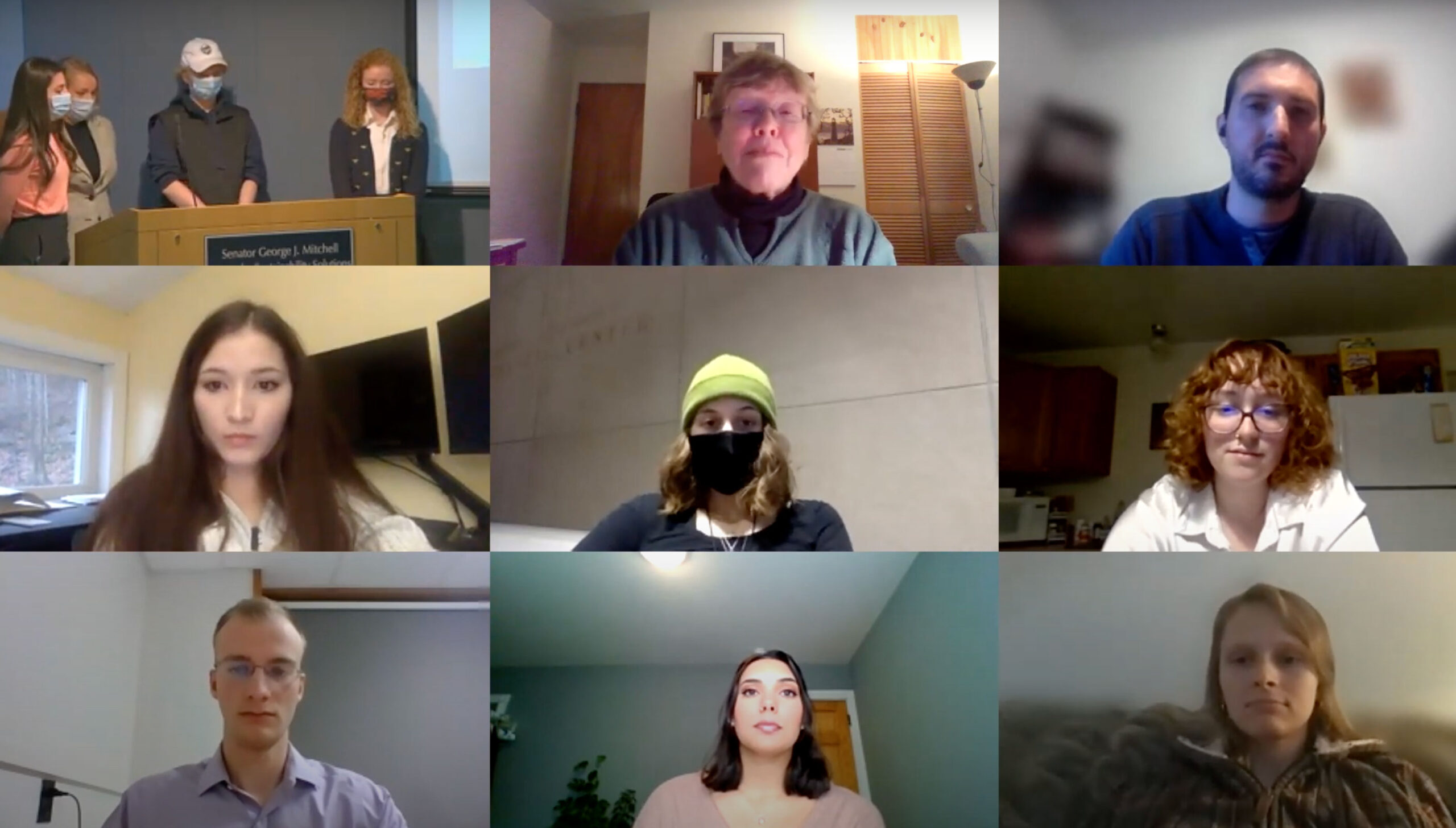
Students present their sustainability research in “Lightning Talks”
On Monday, November 15, the Mitchell Center’s Sustainability Lightning Talks event gave students from UMaine and other Maine schools the opportunity to present their sustainability research—with a five-minute time limit. The students work closely with stakeholders on issues that matter to communities, and they focus their research on solutions.
In his introduction to the student talks, Mitchell Center Director David Hart noted that this event also gives the audience the opportunity to witness the development of a new generation of sustainability leaders. To view a recording of all talks, visit the Mitchell Center’s YouTube channel.
Outdoor Place Attachment Influences Future Residential Aspirations of Rural Youth
Zachary Davis, a second-year master’s student in resource economics and policy at UMaine, asked, ‘How can research inform rural communities’ efforts to retain and attract younger residents?’ His research examines the relationships between attachment to place and community, engagement in outdoor recreation, and future residential aspirations of rural youth in two Maine counties by surveying middle and high school students.
Promoting Health for Sipayik through Alternative Energy Solutions
Jasmine Lamb is a senior in communication sciences and disorders with a minor in Native American Studies at UMaine and a member of the Passamaquoddy tribe. Her research focuses on the issues Passamaquoddy citizens at Pleasant Point face inside of the home, and possible alternative energy or technology solutions that can be implemented to address these issues. She looks at the public health of the community through an Indigenous lens, addressing all directions of the medicine wheel (physical, spiritual, emotional, mental health) and looking at the problem holistically.
Exploring the Potential for Cost Savings and Waste Reduction of Reusable Packaging Systems in Maine’s Restaurant Industry
Jared Entwistle, a second-year master’s student in business administration and ecology and environmental sciences at UMaine, explores the potential for reusable packaging to reduce waste from restaurant to-go services and how those systems might work in Maine. With 36% of municipal solid waste made up of single-use packaging, and 78% of that associated with food service, implementing reusable take-out packaging could help the state meet its waste reduction goals.
Implementing Biochar to Decrease Peat in Soilless Substrates for Lowbush Blueberries
Jessica Hutchinson, a senior in environmental horticulture at UMaine, investigates the potential for biochar to decrease the use of peat in soilless substrates for lowbush blueberries. Peatlands are important for sequestering carbon, and peat harvesting disrupts that carbon capture. Her results indicate that biochar has comparable effectiveness to peat and may prove to be a beneficial alternative, protecting this natural resource that helps to mitigate climate change.
Maine Priorities for Sustainable Aquaculture Expansion: Minimizing Community Conflicts to Promote Resilience in Maine Seafood Networks
Alissa Miller-Gonzalez, a master’s student in resource economics and policy at UMaine, explores the factors that influence Maine residents’ level of support for aquaculture. Results from this analysis will provide the aquaculture industry and the state with information on how to expand production to supply sustainable seafood while minimizing conflicts within communities.
A “Triple-Bottom-Line” Approach to Food Waste Management through Interdisciplinary Teamwork
Food Rescue MAINE Team (undergraduate students): Kalina Kinyon, UMaine; Hannah Crayton, Thomas College; Ryan Fitzmaurice, UMaine; Hannah Mathieu, UMaine; Ariana Walker, University of New England
Food Rescue MAINE is a multidisciplinary project focused on reducing food waste and food loss in Maine while addressing food insecurity. This academically diverse team of undergraduates researches, develops, and implements “triple-bottom-line” solutions that have ecological, economic and social benefits. The students’ varied backgrounds and unique skills and perspectives allow them to support each other and learn from their teammates’ experiences.
Management of Shoreline Change at Maine’s Popham Beach State Park
Kate Follansbee is a first-year master’s student in economics at UMaine who studies how changing shorelines and increased storm events at Maine’s Popham Beach State Park may affect users’ perceptions and visitation patterns, informing park management. Her findings offer insights to coastal managers in Maine and beyond as they engage with the public about coastal management solutions.
